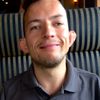Mike DiNapoli
Mike DiNapoli ran for election to the Portland City Council to represent District 4 in Oregon. He lost in the general election on November 5, 2024.
DiNapoli completed Ballotpedia's Candidate Connection survey in 2024. Click here to read the survey answers.
Biography
Mike DiNapoli was born in Portland, Oregon. He earned a high school diploma from Glencoe High School, and an associate degree from Mount Hood Community College in 2009. His career experience includes working in broadcasting.[1]
Elections
2024
See also: City elections in Portland, Oregon (2024)
General election
General election for Portland City Council District 4
The ranked-choice voting election was won by Olivia Clark in round 7 , Mitch Green in round 29 , and Eric Zimmerman in round 31 . The results of Round are displayed below. To see the results of other rounds, use the dropdown menu above to select a round and the table will update.
| Total votes: 76,718 |
||||
 = candidate completed the Ballotpedia Candidate Connection survey. = candidate completed the Ballotpedia Candidate Connection survey. | ||||
Withdrawn or disqualified candidates
- James Bryan (Nonpartisan)
- Thomas Dodson (Nonpartisan)
- Jeremy Beausoleil Smith (Nonpartisan)
Endorsements
To view DiNapoli's endorsements as published by their campaign, click here. Ballotpedia did not identify endorsements for DiNapoli in this election.
Campaign themes
2024
Ballotpedia survey responses
See also: Ballotpedia's Candidate Connection
Mike DiNapoli completed Ballotpedia's Candidate Connection survey in 2024. The survey questions appear in bold and are followed by DiNapoli's responses. Candidates are asked three required questions for this survey, but they may answer additional optional questions as well.
| Collapse all
In addition to my union work, I’ve spent the past five years managing my own businesses, People’s AV and The Studio PDX, where I learned the struggles of Portland’s small businesses. This journey has taught me resilience, adaptability, and the importance of community-focused, sustainable solutions. I view my role as a problem solver, a "community engineer," dedicated to amplifying voices, fostering collaboration, and tackling issues that impact all Portlanders.
A key priority of mine is reshaping the CEI Hub in Industrial Northwest to protect our environment and build climate resiliency. I believe in a sustainable future where we protect our resources and ensure our neighborhoods are prepared for the impacts of climate change. Additionally, I’m passionate about strengthening the city’s partnerships with state and county resources, particularly around mental health and addiction, so our support systems are accessible, robust, and responsive to those who need them.
As a candidate for City Council, I’m committed to representing Portland’s working families- Championing Working-Class Values and Labor Rights: Representing gig workers, tradespeople, and all Portlanders who live paycheck to paycheck, I will advocate for fair labor practices, income equality, and policies that address the challenges of working families and small businesses.
- Accessible Mental Health and Addiction Services: By strengthening city partnerships with state and county resources, I aim to create a more accessible, responsive support system for those impacted by mental health and addiction issues, fostering a safer, healthier Portland for all.
- Affordability and Accountability: My drive is to prioritize affordability in city policies to ease the cost of living for residents. I also stand for accountability within city governance, ensuring that leadership is transparent and responsive to community needs.
Environmental Protection: Focusing on sustainability, climate resilience, and reshaping industrial areas to protect natural resources.
Mental Health and Addiction Services: Enhancing access to responsive, collaborative support systems for those in need.
Affordability and Housing: Tackling the housing crisis to make Portland more affordable for all residents.
1. **Local Representation with State Influence**: It bridges Portland’s specific needs, like housing, labor rights, and public health, to inform state policies with an urban perspective.
2. **Budgetary and Fiscal Oversight**: With authority over city budgets, this office directly shapes resource allocation, ensuring accountability and economic stability while addressing community priorities.
3. **Policy-Making Power**: Council members can craft tailored policies—covering zoning, environmental rules, housing, and more—to address Portland’s unique issues effectively.
4. **Crisis Responsiveness**: Equipped to quickly mobilize resources, the office addresses local crises—from public health to climate issues—through targeted, immediate solutions.
5. **State and Federal Collaboration**: Coordinating with higher agencies, the office secures resources and amplifies Portland’s priorities within state governance.
I also look up to community organizers and grassroots leaders who work outside of the spotlight to effect change. People like Dolores Huerta and Cesar Chavez, who organized with and for their communities, exemplify how powerful collective action can be. I’d like to follow their example by centering my work around the voices and needs of Portlanders, advocating for real, sustainable change in ways that are inclusive and collaborative.
Documentary: "13th" directed by Ava DuVernay: This film provides an in-depth look at systemic inequality in the U.S., especially within the justice system. It reinforces the importance of equity and accountability in government—principles central to your philosophy.
"The Shock Doctrine" by Naomi Klein: This book explores the effects of neoliberalism on public systems, emphasizing the need for policies that prioritize people over profit—an idea that aligns with your focus on labor rights and community resilience.
Empathy and Community Focus: Understanding the needs of constituents and prioritizing the well-being of all community members.
Problem-Solving Ability: Addressing challenges with practical solutions, innovation, and resilience to drive meaningful change.
Commitment to Equity and Justice: Ensuring fair representation and advocating for policies that uplift marginalized and vulnerable communities.
Collaboration and Open-Mindedness: Working well with diverse groups, listening to different viewpoints, and building consensus.
Transparency and Communication: Keeping constituents informed and engaged, making information accessible, and fostering trust through open dialogue.
Vision and Dedication to Progress: Balancing immediate needs with long-term goals to create sustainable, positive outcomes for the community.
Problem-Solving Skills and Practicality: My experience as a union tradesperson, small business owner, and community engineer has given me the skills to tackle complex issues with realistic, actionable solutions. I’m focused on finding tangible ways to improve people’s lives, whether through collaboration or sustainable policy changes.
Empathy and Accessibility: Growing up in Portland, I’ve been shaped by shared community experiences and significant moments that impacted me deeply, like witnessing the Challenger disaster as a child. That empathy drives my commitment to being transparent and accessible, ensuring people feel heard and understood, even in a political role.
Commitment to Accountability and Transparency: I place high value on ethical governance and clear communication because I know that trust is essential in leadership. Accountability and transparency aren’t just buzzwords for me; they’re core principles that guide how I approach every responsibility, from small tasks to major decisions.
Long-Term Vision for Sustainability and Resilience: I’m committed to reshaping areas like the CEI Hub, promoting climate resilience, and strengthening mental health and addiction services. This long-term focus is essential, not only for addressing today’s needs but for making lasting, positive impacts in Portland for years to come.
Policy Development and Oversight: Crafting, evaluating, and voting on legislation that addresses key issues, such as housing, labor rights, public safety, environmental sustainability, and economic development.
Budget Management: Overseeing city budgets to allocate funds responsibly, ensuring resources are used efficiently and in ways that directly benefit the community.
City Accountability and Transparency: Promoting transparent practices within city government, ensuring that all departments are accountable, and making information accessible to the public.
Building Partnerships: Working collaboratively with state, county, and community partners to strengthen services, especially around issues like mental health, addiction, housing, and public safety.
Long-Term Vision and Planning: Developing sustainable, strategic plans that prepare the city for future challenges, including economic shifts, environmental threats, and population growth.
I hope my work helps make Portland a place where people feel valued and supported, where they can thrive without constant worry over affordability, safety, or environmental stability. I want my legacy to reflect a commitment to transparency and accountability, so that future leaders see government as a true partner to the people, serving with integrity and compassion. Above all, I’d like to be remembered as someone who didn’t just listen to the community but actively shaped Portland into a stronger, more inclusive city for generations to come.
Going back a few years to 1986, I can still vividly recall sitting in my elementary classroom, watching with excitement as the Challenger prepared to take off. The energy in the room was electric. But that excitement turned to deep, overwhelming sadness as we all witnessed the tragic explosion. I’ll never forget the tremendous feeling of loss that rippled through the nation and into our community. Experiencing that collective grief and vulnerability so young showed me how connected we are in times of pain and resilience, and it instilled a strong sense of empathy that’s stayed with me ever since.
Alongside that, I started working as a lifeguard at the local city pool with the City of Hillsboro. This job carried a different kind of responsibility, one focused on safety, quick decision-making, and community service. I held the lifeguard position throughout high school, developing skills in leadership, accountability, and public service. Each role provided a unique perspective, shaping my understanding of both hard work and the commitment needed to support a community.
The book’s emphasis on social justice, solidarity, and resistance resonates with your political philosophy and values. It provides historical context that likely reinforces your belief in the importance of transparency, accountability, and community-driven change. A People's History doesn’t just tell a story; it empowers readers to question existing power structures, encouraging the kind of critical thinking and advocacy that have been central to your journey and to the legacy you hope to create in Portland.
Lyrics:
I pray for the ones listening right now
Struggling, feel like giving in right now
I'm a pray for you
Pray that you come back home
I pray that you understand that you're never alone
I pray for the single mothers and the deadbeat dads
Drop the kids off and go party, gets me mad
So I pray
Pray for peace, I pray for change
Keep on praying when everything stays the same
And I pray for the pastors in all of the churches
And those who cry light songs following hearses
I pray for you
Pray for the sick and the poor
Pray for the rich man who don't give to the lord
And I pray for wisdom and I prayer for power
And I prayer for being ready in the final hour
And I Pray for those who keep judging men in the streets
These struggles have fueled my resilience and deepened my empathy. They remind me why affordable housing, fair wages, and supportive policies for working families are essential. Experiencing these challenges firsthand reinforces my commitment to building a Portland where families don’t have to choose between living here and thriving here. It’s a core part of what drives me to create meaningful, lasting change for our community.
Direct Influence on City Contracts: Council members have a say in approving city contracts with private businesses and service providers. This power allows them to prioritize ethical standards, labor practices, and local hiring, directly impacting Portland’s economy and workforce standards.
Oversight of Land Use and Zoning Decisions: While zoning may seem routine, it’s a powerful tool for shaping neighborhoods, influencing housing affordability, and managing urban growth. Council members can designate areas for affordable housing, green spaces, and small businesses, directly affecting the character and accessibility of different neighborhoods.
Ability to Launch Pilot Programs: Council members can initiate pilot programs to test innovative solutions before committing long-term resources. These pilots can address issues like homelessness, transportation, or community safety, providing flexible, targeted responses to community needs.
Citizen Engagement and Advisory Boards: The council has the power to create advisory boards and citizen task forces to involve residents in decision-making. This ensures diverse voices have a say in city policies, increasing transparency and community alignment with local initiatives.
Interdepartmental Coordination: Council members can drive cooperation across city departments—such as public safety, transportation, and housing—ensuring integrated solutions to complex issues, like homelessness and climate resilience, rather than isolated fixes.
In many cases, a background outside of government—in areas like business, labor, community organizing, or public service—equips officeholders with valuable insights into the real challenges people face. These perspectives can drive solutions that are more inclusive, grounded, and relevant to the day-to-day lives of residents. Ultimately, a blend of knowledge, commitment to accountability, and community-focused problem-solving can be more impactful than political experience alone.
Community Engagement and Communication: Building trust, listening to constituents, and clearly communicating policies are essential. The ability to connect with diverse groups and convey complex ideas in an accessible way helps ensure public support and transparency.
Budgeting and Financial Oversight: Skills in budgeting and resource allocation are crucial for managing city funds effectively. Understanding financial principles enables officeholders to prioritize essential services, maintain fiscal responsibility, and maximize the impact of public funds.
Problem-Solving and Strategic Planning: Complex city issues require innovative, practical solutions and the ability to plan for the long term. Strategic thinking helps identify root causes and address them with sustainable, community-centered policies.
Collaboration and Negotiation: Working with other council members, city departments, and external partners demands collaboration skills. Being able to negotiate and find common ground ensures that policies are effective and widely supported.
Legal and Policy Knowledge: While not essential, a familiarity with legislative processes, city ordinances, and legal frameworks can be valuable, helping officeholders navigate policy development efficiently and avoid potential pitfalls.
Direct Representation of Residents: City council members are the primary advocates for their constituents’ needs and priorities, serving as the direct link between the community and city policies. They ensure that diverse voices are heard and considered in city decisions.
Policy-Making Authority: Council members have the power to introduce and shape laws affecting everything from housing and public safety to environmental initiatives, which allows them to directly influence Portland’s development and residents’ quality of life.
Budget and Fiscal Control: With the authority to allocate funds across various services, council members play a critical role in managing the city’s budget. They can prioritize funding for essential services, infrastructure, and programs that align with the community’s needs.
Rapid Response Capability: This office can respond to local crises and emerging issues quickly. Whether addressing public health emergencies, housing shortages, or climate impacts, council members can implement swift, targeted solutions when needed.
Collaboration and Partnership: Council members work with city departments, community organizations, and state agencies, enabling a coordinated approach to complex issues like homelessness, addiction, and economic development.
The bartender says, "What'll you have friend?"
Accountability also means city officials should be held to high ethical standards, where they take responsibility for both successes and setbacks. When policies fall short or funds are mismanaged, leaders should address the issues head-on, correct course, and learn from the experience. To me, government accountability isn’t about perfection; it’s about responsiveness, honesty, and a commitment to improvement.
Note: Ballotpedia reserves the right to edit Candidate Connection survey responses. Any edits made by Ballotpedia will be clearly marked with [brackets] for the public. If the candidate disagrees with an edit, he or she may request the full removal of the survey response from Ballotpedia.org. Ballotpedia does not edit or correct typographical errors unless the candidate's campaign requests it.
See also
2024 Elections
External links
|
Candidate Portland City Council District 4 |
Personal |
Footnotes
- ↑ Information submitted to Ballotpedia through the Candidate Connection survey on October 7, 2024
| |||||||||






















